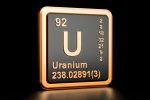There’s somewhat of a changing of the guard when it comes to commodities futures contracts. Oil could lose its futures trading volume crown to critical minerals like lithium, which is seeing heightened activity.
It’s quite simply a sign of the times. The world is reducing its carbon footprint and opting for alternative energy sources. That’s now translating into trading activity where commodities like lithium are seeing strength, and with good reason. As the population of electric vehicles (EVs) increases, the demand for lithium will also spike.
“Surging futures activity on CME Group’s lithium contract allowed for entry into the S&P GSCI Electric Vehicle (EV) Metals Index,” a S&P Indexology blog pointed out. “This milestone reflects the changing nature of indices to maintain a representative share of the global commodities market.”
The transition to cleaner energy sources is paving the way for the transition to critical minerals trading in commodities.
“Like early millennials who were born in the 1980s, oil futures are now 40 years old and face a new generation entering adulthood,” the blog added further. “This new generation of futures contracts are iron ore, cobalt and lithium, which, combined with industrial metals, have come to create a new ‘sector’ of commodities and power the energy transition economy.”
2 ETFs Worthy of Consideration
ETF provider Sprott offers ways to trade the transition to critical minerals. For lithium exclusively, consider the Sprott Lithium Miners ETF (LITP).
LITP seeks to provide investment results corresponding to the total return performance of the Nasdaq Sprott Lithium Miners Index. That index is designed to track the performance of a selection of global securities in the lithium industry. This includes producers, developers, and explorers. The fund features 44 holdings as of May 23, offering investors broad exposure to the industry’s ancillary services.
For a more broad play on critical minerals, traders can opt to use the Sprott Energy Transition Materials ETF (SETM). SETM presents investors with an opportunity to capture the growth as it focuses on companies positioned upstream in the supply chain that stand to benefit from the increased investment in the critical minerals required for the clean energy transition.
Per its fund description, SETM seeks to provide results that correspond to the total return performance of the Nasdaq Sprott Energy Transition Materials Index. The index tracks the performance of a selection of global securities in the energy transition materials industry.
For more news, information, and analysis, visit the Gold/Silver/Critical Materials Channel.








